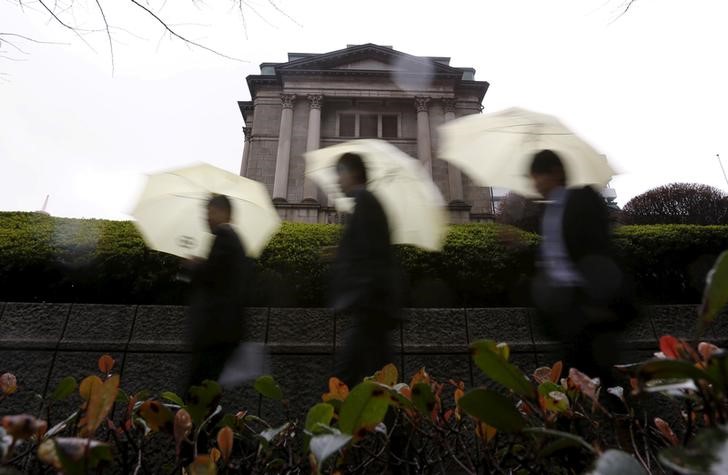By Leika Kihara
TOKYO (Reuters) – There is no chance Japan will resort to “helicopter money,” a policy in which the central bank indefinitely finances fiscal spending through perpetual bonds, any time soon, government and central bank officials directly involved in policymaking said. The Bank of Japan already gobbles up more government bonds than is sold to the market each month under its massive monetary stimulus program – dubbed “quantitative and qualitative easing” (QQE) – deployed in 2013. With the BOJ already keeping borrowing costs near zero with aggressive money printing, there is no strong push from premier Shinzo Abe’s administration to revise the law and force the central bank to resort to helicopter money, said the officials, who declined to be named due to the sensitivity of the matter. It is also prohibited by law to directly underwrite government debt, which means parliament needs to revise the law for the central bank to start directly bank-rolling debt.
“Adopting helicopter money in the strict sense is impossible as it’s prohibited by law,” said one of the officials. “If it’s about the BOJ buying huge amounts of bonds and the government deploying fiscal stimulus, we’re already doing that.” “It’s an illusion to think that a country can spend as much money as it wants, without having to pay it back,” said another official on condition of anonymity.
“I haven’t heard of any such discussions taking place in the Ministry of Finance,” a third source said, adding that adopting helicopter money was “unthinkable.”
The BOJ buys roughly 80 trillion yen ($755.6 billion) of government bonds each year, nearly 2 percent the size of Japan’s economy.
Some investors had speculated that Japan might decide to provide “helicopter money” – a term coined by American economist Milton Friedman. It gained popularity after former Federal Reserve Chairman Ben Bernanke cited it in a speech in 2002, when talking about how central banks might finance government budgets directly as a way to fight deflation. Under the idea, the government would issue perpetual bonds and have the central bank accept them, so that the government can keep spending without having to pay back the debt.
The yen BOJ Governor Haruhiko Kuroda has dismissed the idea of helicopter money, stressing the central bank is buying bonds not to finance debt but to hit its 2 percent inflation target.
Koichi Hamada, an economic adviser to Abe, told Reuters on Thursday Japan should not resort to helicopter money as it could lose control of inflation.
Masahiko Shibayama, another influential aide to Abe, also voiced caution over helicopter money involving the issuance of perpetual bonds.
“Resorting to such a step would be sending a grave message to the international community” on Japan’s fiscal management, he told Reuters on Thursday. “We need to think carefully about how markets will react if we even signal it as an option.” (Additional reporting by Tetsushi Kajimoto and Kaori Kaneko; Editing by Jacqueline Wong)
No chance Japan will adopt ‘helicopter money’ soon: sources

By Leika Kihara












